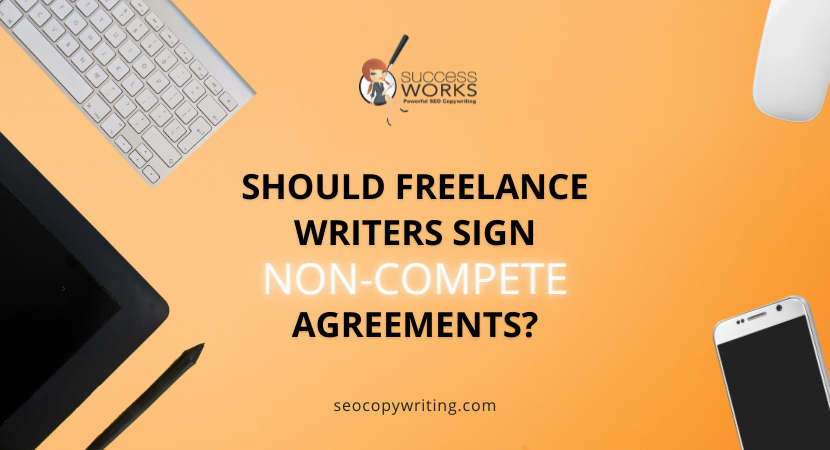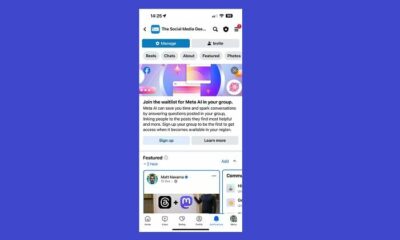SEO
Should Freelance Writers Sign Non-Compete Agreements?

So…
I lost a consulting job last week — and how it happened is a great lesson for freelancers and agency owners.
Some backstory: An agency owner wanted to partner on a possible client project. We had spoken before and “clicked” well, so I was happy to help with the proposal and provide my content thoughts.
Especially since they’d hire me to work on the project when the prospect signed on the bottom line.
The excellent news for the agency owner? They got the gig.
The bad news for me was the end client insisted I sign a non-compete to come on board. The contract restricted me from working with a list of companies (the end client’s “competition”) for three years.
That meant I couldn’t work with the companies AT ALL — even if they directly contacted me. Even if the work I’d do for the competing companies was completely different.
My agency friend couldn’t hire me according to the end client’s contractual terms UNLESS I signed the non-compete.
Which I wouldn’t do.
So I walked away. I hated to do it, but I walked away.
And if you’re faced with a similar situation, you should consider walking away too.
What’s the big deal about freelancers signing non-compete agreements?
I’m so glad you asked.
Sometimes, if you work with an agency, their contract states that you can’t solicit their clients. After all, the agency doesn’t want you contacting their clients, saying, “Hey, I’m already writing your content. Why not hire me directly and cut the agency out of it?”
That, to me, makes sense.
But imagine this…
Let’s say you land a $5,000 contract with a B2B SaaS company that makes you sign a non-compete. You have to wait two years before working with another B2B SaaS company.
It may not feel like a big deal at the moment. After all, you just made a 5K sale!
Then, 18-months later, another B2B SaaS company wants you to consult with them. They’re ready to sign a $25,000 agreement…but you can’t take the gig.
Why? Because you signed away your rights 18 months ago.
(You see where this is going?)
Back in my twenties, I learned this lesson the hard way. I accepted a sales job and stupidly signed a non-compete. The job was dreadful, and I lasted all of two weeks.
I got a new job quickly — but I couldn’t start until the company president released me from the non-compete. I had to track him down and beg him to let me out of the contract.
It took weeks. Weeks with ZERO income because of that stupid contract.
Yeah, never again. That’s why many states don’t enforce employment non-compete agreements.
You can’t restrict how someone makes a living.
Does that mean freelance writers or agencies should never sign non-competes?
Not necessarily. But, this IS a situation where you want to get an attorney involved before you sign. Always.
Why? Assuming you want to move forward with the client, your attorney ensures your right to make a living is protected. Non-competes are tricky, and if they’re too broad or the duration is too long, your income is at risk.
Plus, you may be so excited about landing the client that you don’t see the far-reaching ramifications. Your attorney can dispassionately explain the risks and trade-offs and craft an agreement that’s more in your favor.
For instance, if a company wanted to give you a humongous yearly retainer in exchange for not working with Company X, well, that may be worth it. You’d be getting something in exchange for signing a non-compete.
Or perhaps the client would agree to shorten the non-compete duration from three years to one. It’s not great, but it could be workable in some situations.
Just don’t sign away your right to do business without getting something in return. And, if you want to negotiate your non-compete, always get an attorney’s help.
Always.
Your livelihood is too valuable to sign away for one stupid client.
What do you think?
Have you been asked to sign a non-compete? How did you handle it? Leave a comment and tell me all about it!
Source link



















You must be logged in to post a comment Login